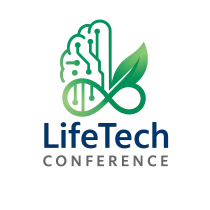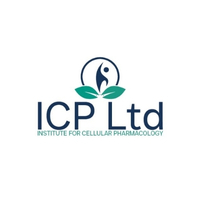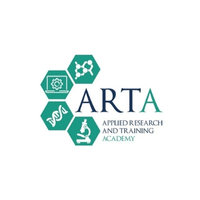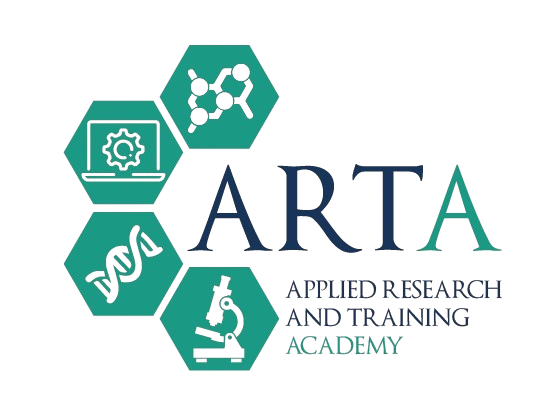
LifeTech 2025
Phylogenetic Compatibility




Malta | 25–26 November 2025
Exploring Evolutionary Relationships, Research Innovation & Global Collaboration
ARTA, in collaboration with the Institute for Cellular Pharmacology (ICP) Ltd and Evolve Ltd, proudly present LifeTech 2025, an International Conference. This year’s theme is Phylogenetic Compatibility, with the event taking place between the 25th–26th November 2025 at the ARTA Campus, Mosta Technopark, Malta.
This landmark event will bring together scientists, academics, researchers and students from across the globe to examine evolutionary relationships in biological systems and the frameworks that shape them. The multidisciplinary programme will cover genetic, computational and ecological perspectives, creating a collaborative space to share cutting-edge research, spark dialogue and build lasting international networks.
Dates:
25–26 November 2025
Venue:
ARTA Campus, F25 Mosta Technopark, Mosta MST3000, Malta
Contact:
Conference Highlights
The Malta 2025 International Conference is more than a scientific gathering it is a meeting point of innovation and collaboration. Malta, with its rich history and inspiring atmosphere, offers the perfect backdrop for such ground-breaking discussions. If you are passionate about the future of medicine and therapeutic innovation, this is an event you won’t want to miss.
⦁ Inspiring keynote lectures by leading experts in phylogenetics, bioinformatics and molecular evolution
⦁ Engaging technical sessions, workshops and panel discussions
⦁ Poster and oral presentations from both emerging and established researchers
⦁ Cross-disciplinary forums bridging biology, ICT and data science
⦁ Networking opportunities (including a welcome reception) to foster global research collaborations
Whether your focus is in evolutionary biology, genomics, systems ecology, or related fields, this conference promises valuable insights, opportunities for collaboration and a platform for future innovation.
Conference Themes
The program is structured around two central themes, each building toward a holistic understanding of phylogenetic-based therapeutics:
Day 1: The New Landscape of Biotechnology: Phylogenetic Tools, Regenerative Innovation and High-Standard Research Environments
A forward-looking exploration of how phylogenetic therapeutics, regenerative technologies and advanced research environments are reshaping the foundations of modern biotechnology.
Day 2: Biotechnology in Action: Regulatory Pathways, Genomic and Digital Tools, Quality Systems and Therapeutic Breakthroughs
A practical and strategic view of biotechnology’s future, highlighting regulatory pathways, genomics, digital integration, quality systems and emerging therapeutic approaches.
Key Topics of Discussion
The conference covers a wide range of innovative and high-impact topics, including:
- Phylogenetic Therapeutics and Cross-Kingdom Homology – Exploring human–plant gene parallels and their application in next-generation therapeutic development.
- Regenerative Medicine and Stem Cell Innovation – Imaging, digital tools and advanced technologies supporting cell-based therapies and tissue repair.
- Smart Laboratory Design and Research Ecosystems – Building high-performance biotech environments through integrated technologies and human expertise.
- Natural Products and Bioactive Compounds – Scientific evaluation of plant-derived molecules, their potential, limitations and therapeutic relevance.
- Microbiota Science and Personalised Health – Understanding patient outcomes through microbiome analysis and its translational applications.
- Regulatory Pathways and Quality Standards in Advanced Biotechnology – Market authorisation case studies and lessons in compliance, safety and excellence.
- Genomics Workflows and High-Throughput Technologies – End-to-end genomic platforms, sequencing tools, and technologies powering precision bioscience.
- Quality Assurance in Scientific Education and Lifelong Learning – Frameworks supporting CPD, accreditation and skill development for scientists and technical specialists.
- Digital Biotechnologies: IT, AI and Data Integration – Strengthening scientific expertise, workforce capability and decision-making using digital intelligence and phylogenetic insights.
- Natural Antiviral Strategies and Immune Support – Plant bioactives, immune-modulating agents and innovative approaches.
- Oncogenic and Opportunistic Viruses in Cancer – Evidence-based findings on viral involvement in oncology and therapeutic contributions of plant-derived compounds.
- Tools of Discovery in Modern Bioscience – Cutting edge instrumentation: genomic tools, imaging platforms and analytical technologies driving new discoveries.
- Research Funding and National Support Schemes – Funding opportunities enabling scientific research, innovation and researcher development.
Conference Programme
Day 1 – Tuesday 25th November 2025
- 08:30–09:15 Registration & Welcome Coffee
- 09:15–10:00 Opening Ceremony & Welcome Speeches
Guest of Honour: Her Excellency Mme Sandrine Lelong-Motta - 10:00–10:30 Official Launch of ARTA premises
- 10:30–11:00 Coffee Break
- 11:00–12:30 Conference Session 1.1
- 12:30–14:00 Buffet Standing Lunch
- 14:00–15:30 Conference Session 1.2
- 15:30–16:00 Coffee Break
- 16:00–17:00 Conference Session 1.3
- 18:00–20:00 Networking Reception
Day 2 – Wednesday 26th November 2025
- 08:30-09:00 Welcome Coffee
- 09:00–10:30 Conference Session 2.1
- 10:30–11:00 Coffee Break
- 11:00–12:30 Conference Session 2.2
- 12:30–14:00 Buffet Standing Lunch
- 14:00–15:30 Conference Session 2.3
- 15:30–16:00 Coffee Break
- 16:00–17:00 Closing Ceremony & Presentation of Certificates
Confirmed Speakers and Guests of Honour
- Her Excellency Mme Sandrine Lelong-Motta
French Ambassador to Malta - Dr Gilles Gutierrez
Director, Institute for Cellular Pharmacology (ICP) Ltd and Texinfine Laboratories Lyon
President, Applied Research and Training Academy (ARTA) - Dr Claire Baluci
Director, Institute for Cellular Pharmacology (ICP) Ltd
Principal, Applied Research and Training Academy (ARTA) - Mr Christopher Busuttil Delbridge
Managing Director, Evolve Ltd - Mr Zachary Muscat
Business Account Manager & Field Application Scientist, Evolve Ltd - Dr Ellie Kirby
Product Specialist (Genomics), Promega Corporation UK - Mr George Cutajar
Director General (Standards & Metrology), Malta Competition and Consumer Affairs Authority (MCCAA) - Dr Jacqueline Micallef Grimaud
Director, Quality Assurance Department, Malta College of Arts, Science and Technology (MCAST) - Prof Joseph Buhagiar
Associate Professor, Department of Biology, Faculty of Science, University of Malta - Dr Manuele Biazzo
Director, The BioArte Limited - Ms Nicole Weaving-Baluci
ICT and Digital Marketing Manager, Institute for Cellular Pharmacology (ICP) Ltd
Director ICT, Knowledge Management & Curriculum Office Applied Research and Training Academy (ARTA)
Educator ICT and Computing, St Aloysius College - Dr Silvia Madeddu
Senior Scientist, Institute for Cellular Pharmacology (ICP) Ltd - Representatives from Xjenza Malta
